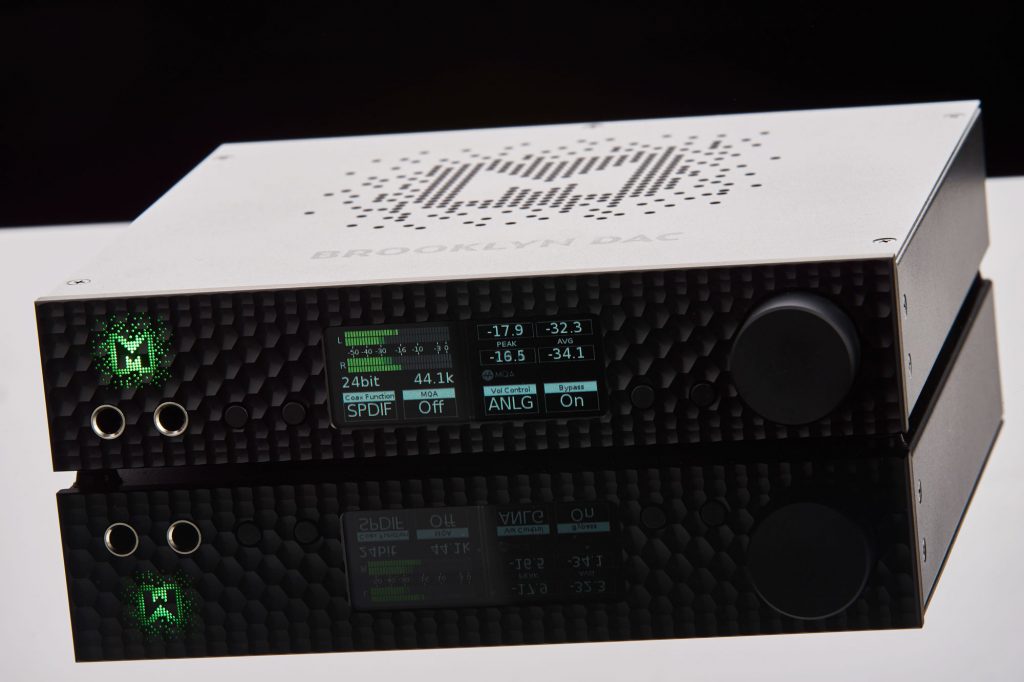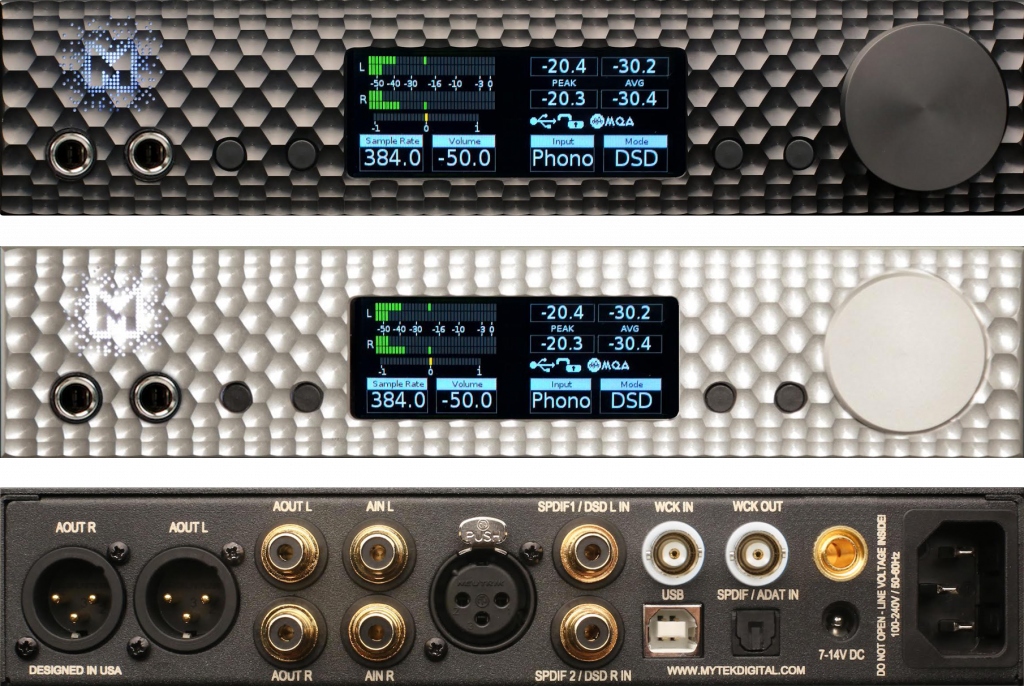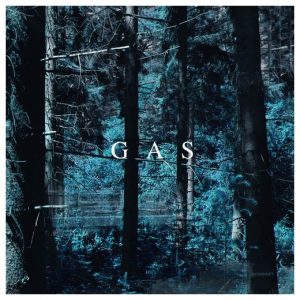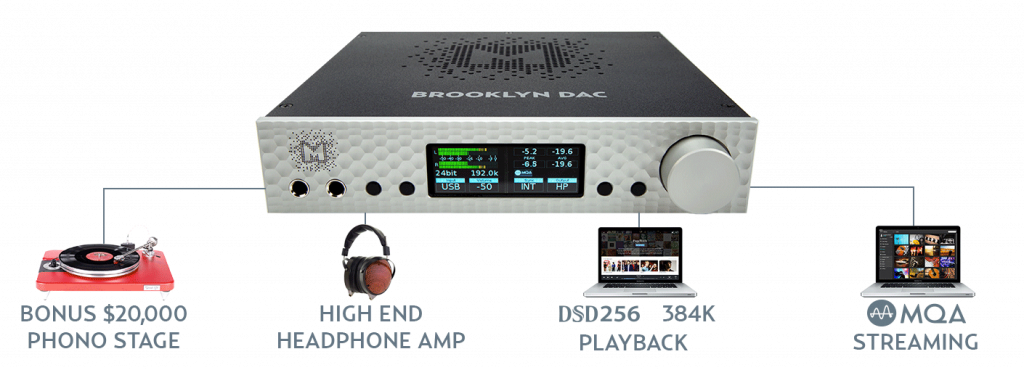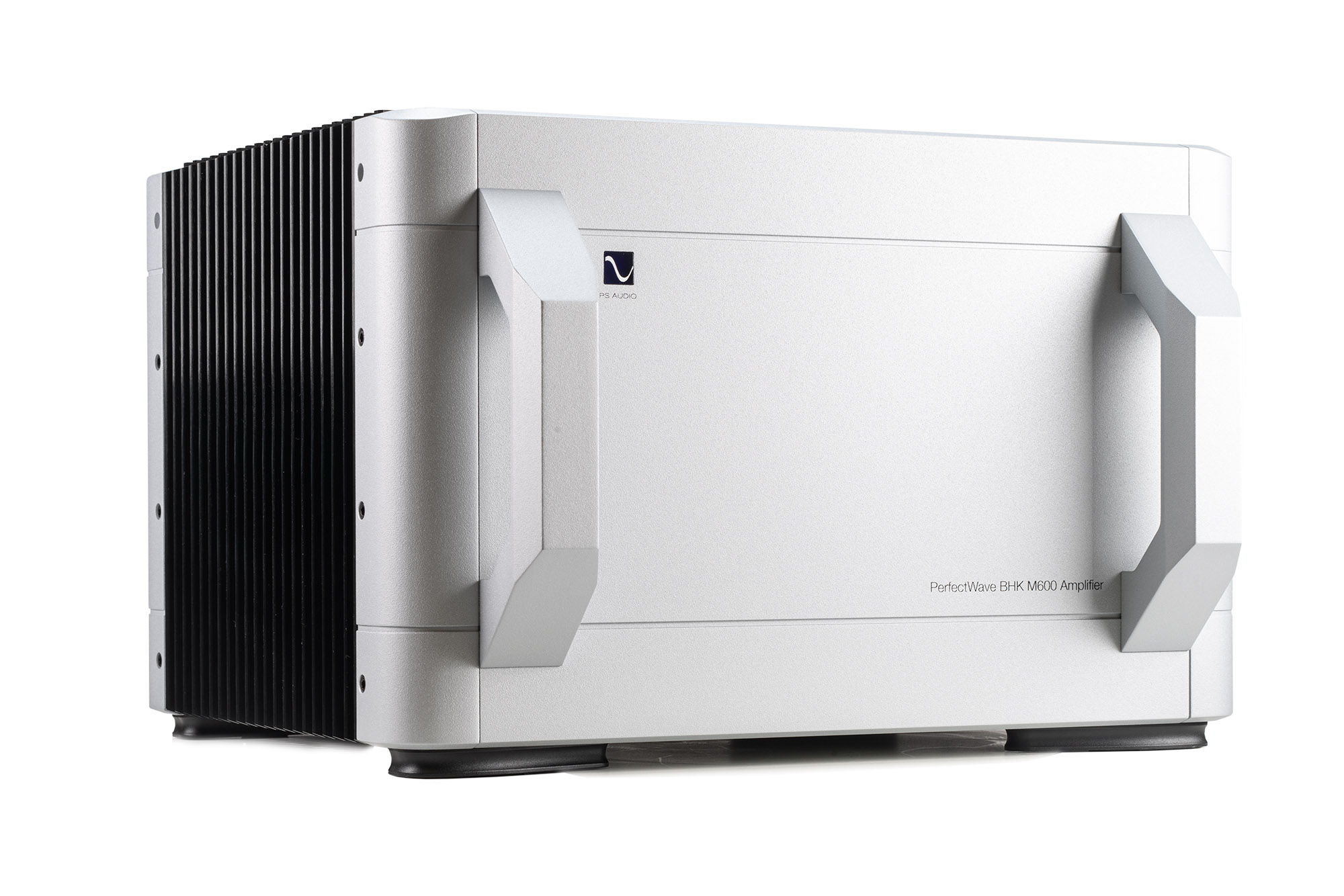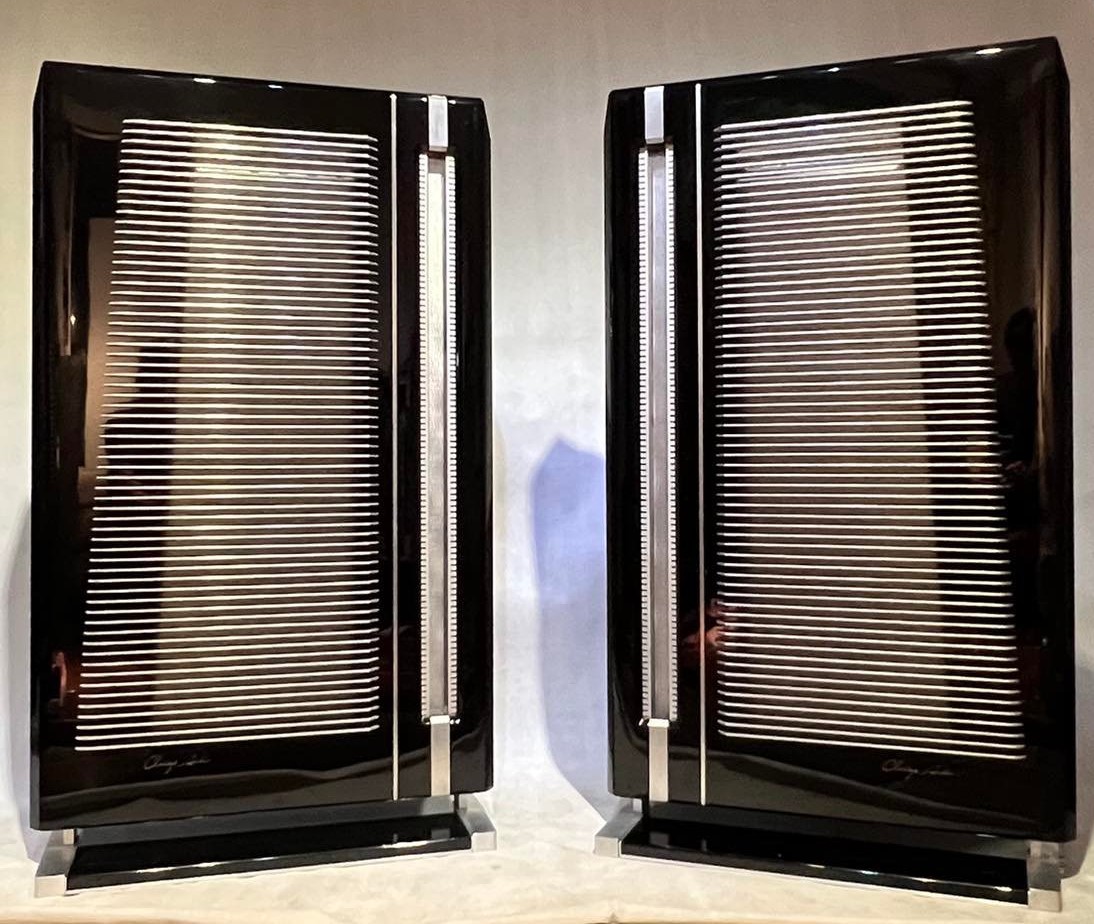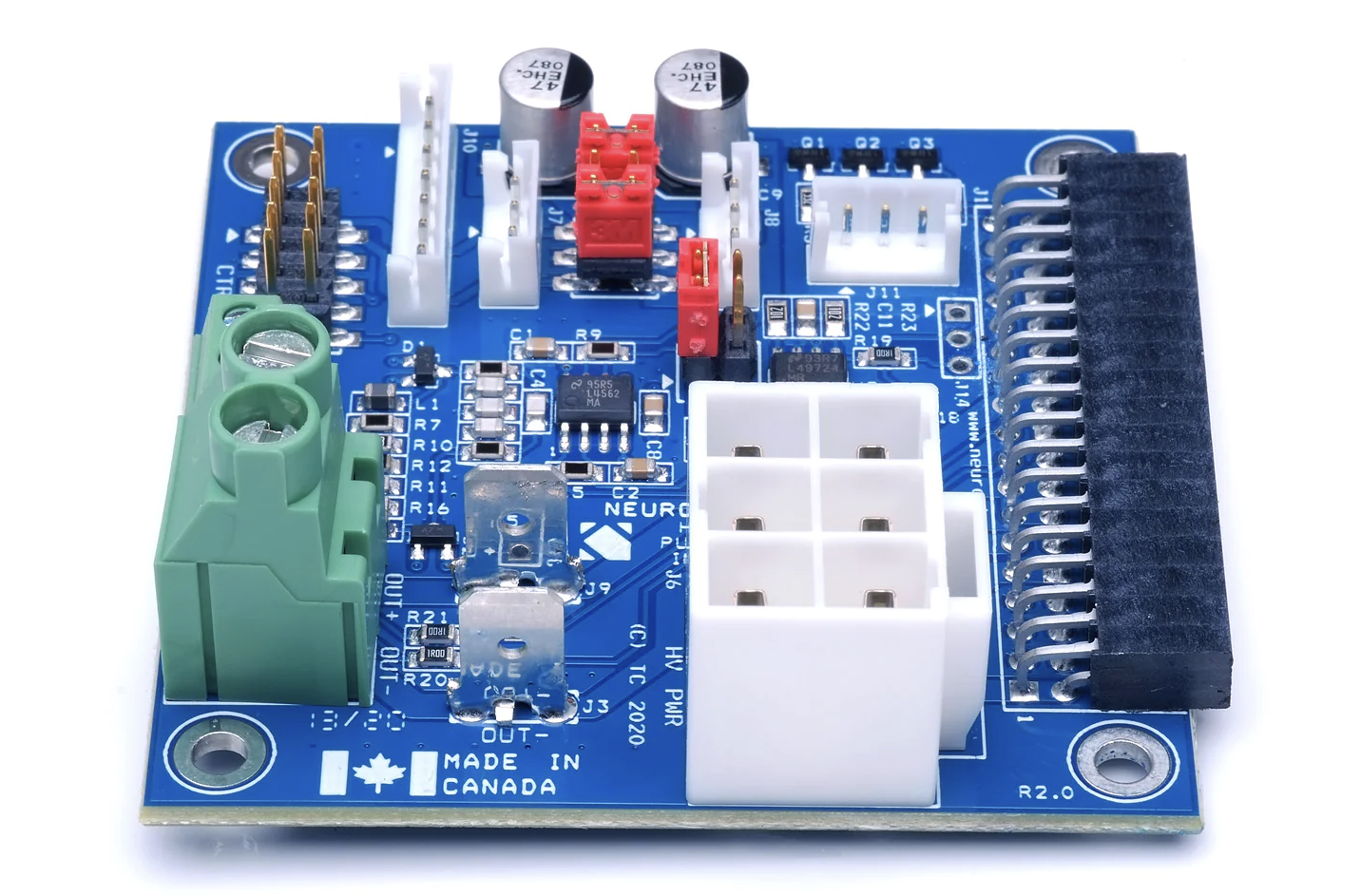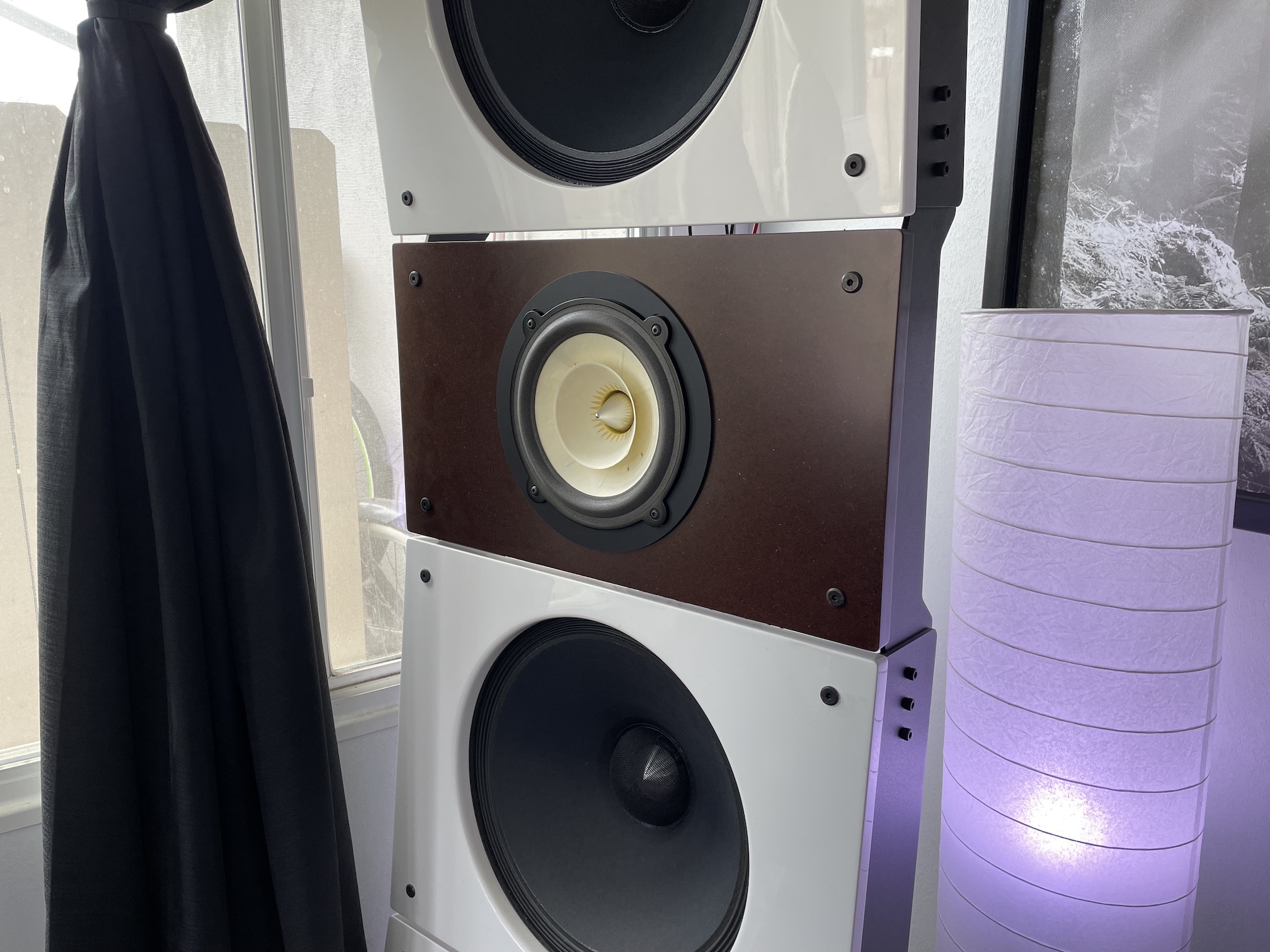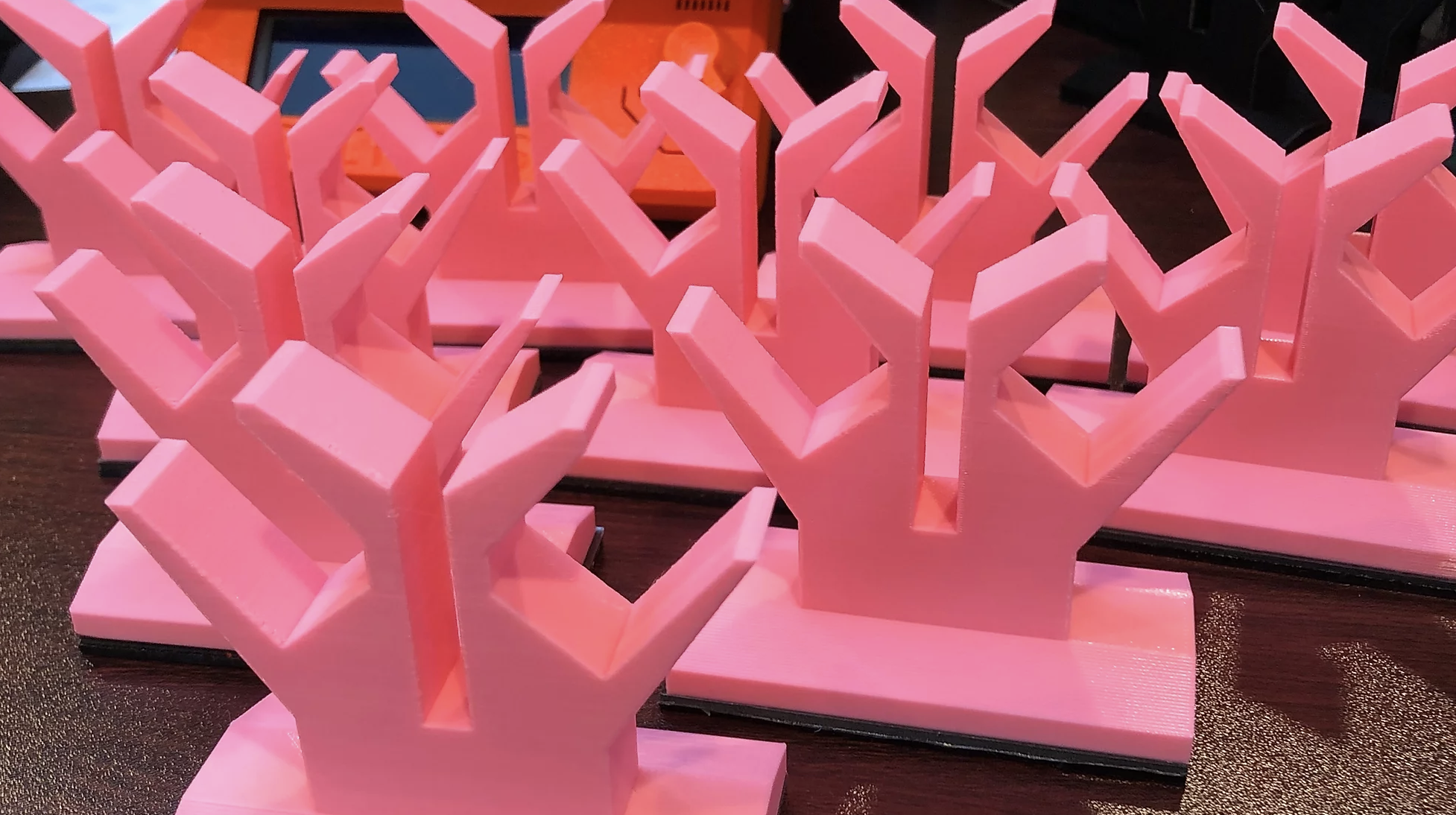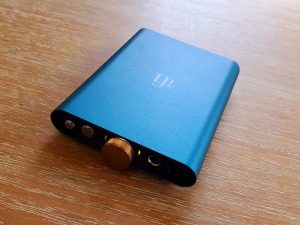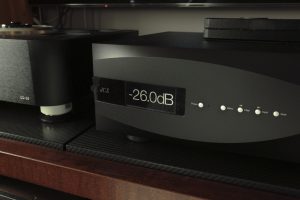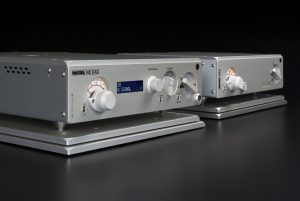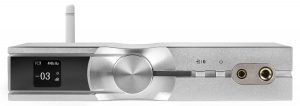Nothing beats the convenience of digital music. For many years, I have stored and played back digital music (before the MP3) because of how easy it was. I loved having a huge collection of music just to play at the tip of my fingertips. Not only that, but it caused a surge of new music because it was easier for new musicians to get their music out digitally vs. physically. Yes, this caused other issues such as piracy and such, but I'm a firm believer that digital music has helped widen my music arsenal. The Mytek Brooklyn DAC will take it even further.
I guess my original DAC was a soundblaster inside of a PC. I didn't know it at the time, but I was both encoding (and decoding) .wav PCM files off the hard drive and out of the speakers. I remember the times of using different compression algorithms to try and conserve disk space (gee, remember those days?) and just recording audio back in (which was a basic ADC, I suppose) was fascinating to me. As I got older, I started to realize the benefit to an outboard DAC, but still... back then, it was usually tied to a computer somehow. It was easier to have an internal card to an AT-based computer, since the bus was there—but then came along USB and Firewire! I mean, sure, there was SCSI, but that was more reserved for storage or scanning peripherals back then.
Just over the last 15 years (man, I was going to say 10, but had to really think about that…) since USB became mainstream, we've seen a cornucopia of DACs hit the audiophile market. They existed in the pro audio world for much longer—and to be honest I preferred the pro audio derivatives over the audiophile ones, just because of the tenure in the market. I mean, what better way to decode audio than to use the same devices that were encoding it? I used a few from M-Audio, amongst others (Lavry, Benchmark, Assemblage, Weiss, on and on) and then I remember all the other ones following suit, trying their best to get what they could using USB 1 spec (which was a paltry 16/44 and sometimes a little higher) but then the big boys came out creating their own drivers which would allow for much higher bitrates. I guess most of this is diatribe now, you may or may not know the history, but man the struggle was real! Everyone had their own way of doing things and most of them brought about 80% to the table. Not one device was really 100% awesome.
Mytek really made a namesake for themselves in the audiophile world when the Stereo 192 DAC came to the market. Not only would it play all PCM resolutions at the time, it would decode DSD! I won't focus too heavily on DSD in this review because there is now a plethora of information on the format, and it's up to you to decide if it's a format of choice for you, but the point here is that the DAC did it all. Well, the 192 did what was called "Double DSD". If you are after my opinion, I prefer DSD for its archival capabilities. Nothing matches it if you're trying to digitize a true analog waveform (tape, vinyl, etc..)
The other huge challenge with using a computer-based DAC is that you won't get much out of it unless you are using the right software on the computer. This then brought about all sorts of software playback systems (because iTunes just wasn't enough—i.e. it wouldn't do bit perfect and tell the DAC to change resolution and such) so came all sorts of software—which sometimes would be just a bit too geeky and ruined the experience for me and others and it started to turn people away from using an outboard DAC. Well, that finally started getting better with software like Pure Music, Audirvana, Amarra, J River, Roon, yadda yadda. Then having the Mytek in my system was the perfect Swiss army knife. Sure, it wasn't this elegant looking Audiophile grade piece of equipment, but the price was just crazy! At the time of all of these "wanna-be" DACs coming to market, here comes Mytek with a disruptive price, amazing features, and also built by the well renowned pro audio designer Michal Jurewicz. Yes! Pro Audio! Michal cut his teeth designing DACs for major music studios for music groups that everyone has heard of (Here is a great link to a Q&A session with Michal if you are interested in the history - HERE) so I would say he is uniquely qualified on the topic.
When the 192 first came out, I got one right away and started to breathe new life into my digital music collection. Not only that, but I could now play back DSD recordings from friends right here into my audio system! It's like a teleportation device, let me tell you. Hearing recordings from tape scratch masters without the huge R2R sitting next to me was quite something. It was also just as fun playing these back to those that recorded them for me just to see their eyes light up. Yes, I could go on and on about how cool DSD is, but even cooler that I was able to play it back in my system. At this point disk space became cheap so it really didn't bother me how large these files were.
Well, time went on, and Mytek finally decided to make a few new products that would appease the other side of the Audiophile market—that is the Manhattan and Brooklyn models. First the Manhattan, which was a full-sized unit (1U, I believe) complete with machined fascia and super cool looking dot-matrix display and with the "Audiophile price". I'll admit, I was drawn to the unit for its looks alone, I mean sure, it had new performance gains and could play higher resolution DSD Files, but really I just thought it was damn sexy. Alas, I never did get my hands on one (although my good friend and editor Dave Clark did) I did eventually get a Brooklyn which came AFTER the Manhattan and was its "younger sibling" so-to-speak. When the Brooklyn was announced, I was smitten with its sleek aesthetic, beautifully machined faceplate, and the new features! It even has a built-in phono stage!
Who'd have thunk that they could have improved the 192. Well, they did, and blew it out of the park. This unit handles Quad DSD (well, on a Windows PC—boo), dual headphones, a combo line-in that handles standard and also a MM/MC phono cartridge. Yes, more and more. Unfortunately, execution wasn't perfect though. For example, the line-in is just that, and is switchable via the clunky interface. It takes several button pushes to switch inputs (well, if you're using the unit itself, but it a bit easier using the included Apple remote) and also unfortunately only allows one or the other. It would be really cool if the unit had 2 (or 3) analog inputs so that one could completely get away from using a preamplifier, but now I'm just being a nit-picker. You see, I am also trying to downsize my system using smaller footprint devices but unfortunately I had to keep a preamplifier in the chain just to act as a switcher. This ended up having to be a necessity anyway, because using the built-in phono stage ended up being a bit on the noisy side (still trying to work this out, but using an outboard phono stage did end up being much quieter). Also, the super fancy OLED display, while nice, ends up burning in over time if one likes to leave their audio system on 24/7. There should be some sort of screen saver built in for that, to shift the pixels around to prevent burn-in, but this was a minor detail left out—which left me with some burn-in (i.e. if I switch screens I can still see the old screen permanently).
On the digital side of things (which, to me is all the more important) they got everything right! PCM up to 384k, DSD up to 4x. And it also does MQA. Yes, Mytek brought an even bigger Swiss-Army knife to the market, handling all of the latest formats. For PCM, nothing new here. Just perfect playback per usual—quality without the harshness using the tried and true Sabre chip (which requires a ton of customization to provide the right experience to the listener). DSD is fun as usual. One thing though that bothers me is that if one is using a Linux based machine (be it OSX / Apple or Linux in general) that it uses the native USB format which does not permit quad DSD. I can explain why until I'm blue in the face, but regardless, this is a bit of a letdown. I really wish a driver would have been created for Linux (or OSX) to overcome this hurdle. I'm not a Quad DSD expert by any means, but it's always cool to tell your friends that yeah, I can play 4x DSD if I wanted! Even the best software cannot overcome this—I'm using Roon now and a Roon Bridge (essentially a Raspberry Pi 3 on Linux) which does DoP (DSD over PCM). Oh well, ho hum. I did build out a Windows based PC to test 4x DSD using the Mytek Driver, and it works!
MQA is another topic I will not get into as it's still in its fresh newness phase. I can understand the merits behind it, and support what the industry is trying to do (breathe some new technology into the digital market), but I will admit I did not do much testing here. I did download a few sample files just to verify that it worked, and it did. The display will show MQA, and also which level of MQA is being decoded. So, if MQA is your poison, there you go!
Another tweak this device allows is the ability to accept a 12v power supply—for those that don't believe in switching power supplies, or ones that just want to BYO (bring your own). I have not played with this yet, but I do have a few linear 12v power supplies that I will play with but for now I wanted to keep this review strictly to the unit itself. Personally, I don't see an issue with using the built-in switching power supply, but, maybe if I use my own it will resolve some of the noise that was evident using phono-in.
On the analog side of things, I have a Triangle Art Signature Turntable with a complement of Triangle Osiris tonearms, and a Tri-Planar (12") on loan so I thought, why not also use the Mytek as a phono stage so that I could, if I wanted, switch between two different tonearms and cartridges with a remote control? This proved to be a bad idea as I said earlier, I got / get a ton of noise using the included phono stage. I'm not necessarily blaming the Mytek for this, hell, it could be one of my many audiophile grade cables at play here, but it does not happen using the same cables on my other various phono stages (NAT and Pro-Ject). So, YMMV here. I'm willing to bet that if you had a very simple system (mine is a bit complicated) that you probably wouldn't have this issue... and also I have heard this unit's phono stage at audio shows without any noise present, so don't let this get you worried. I'm just saying, don't buy this unit as a phono stage alone, rather buy it as a DAC and leverage it as a phono stage if you're into that sort of thing. Gosh, wouldn't it be cool if this device also included ADC capabilities to allow one to record! Hint-hint.
I have played so much music through this DAC that I wouldn't' know where to start, but at the time of this article I'm listening to Gas' latest, Narkopop, and it's so engaging. All I hear is sweet, sweet music. No DAC issues, blips, and or beeps getting in the way—just pure un-adultered music.
This DAC comes HIGHLY recommended from me, if you're into that sort of thing, and looking for the best at an UNBEATABLE price point. Headphone Amp, Preamp, Phono Stage, DAC (DSD, DXD, MQA, PCM) all in one. It even allows you to customize the color of the logo that lights up to better match your system. Details baby, details!
Brooklyn DAC
Retail: $1995
Mytek Digital




